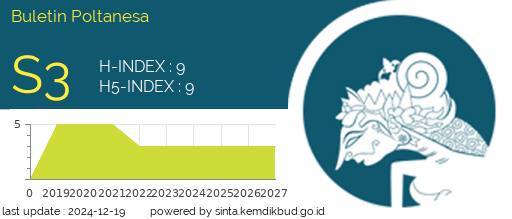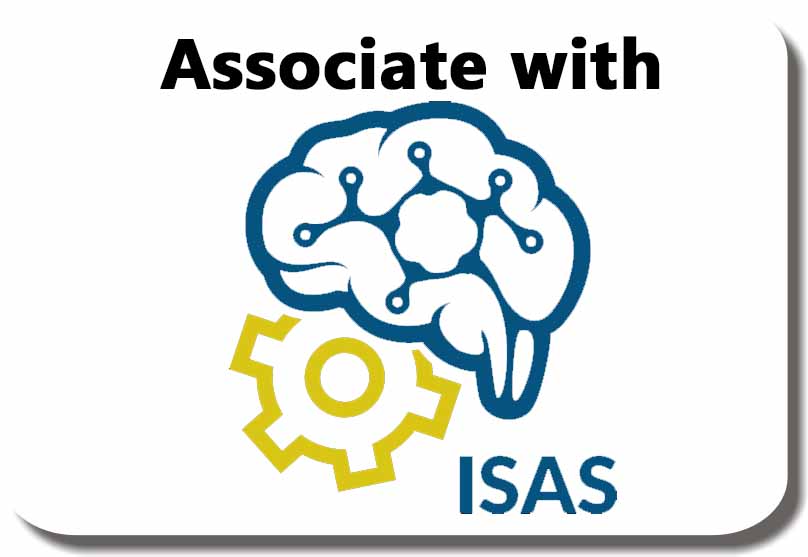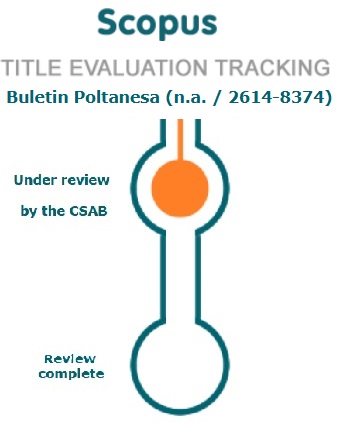Generating Digital Literacy Website: Upgrading the Understanding of Digital Literacy at SMA Yuppentek 1 Tangerang
DOI:
https://doi.org/10.51967/tanesa.v24i2.2958Keywords:
Application, digital literacy, website, senior high school, understandingAbstract
This community service initiative introduces a website and Android-based application system to enhance digital literacy among educators at SMA Yuppentek 1, Tangerang. The prevailing issue pertains to the misuse of digital media, which significantly impacts societal well-being. Adolescents, being prolific users of digital platforms, face heightened vulnerability to various crimes stemming from their social media engagements. To address this, preventive measures necessitate an elevation of the partners' proficiency and comprehension in digital literacy. The initiative emphasizes social humanities and information systems, channeling efforts into fostering literacy and constructing website and Android applications to fortify the practice of digital literacy. The implementation strategy encompasses meticulous stages of preparation, execution, and reporting. The primary focus during the implementation phase centers on comprehensive solutions, comprising educating on digital literacy, providing insights into applications pertinent to digital literacy, crafting digital literacy applications, and formulating a digital literacy module. This program aims to foster a sustained understanding of digital literacy in youngsters, empowering educators to navigate and mitigate challenges posed by digital media misuse among adolescents. By equipping them with the requisite tools, it strives to fortify the capacity of educators in addressing the complexities inherent in adolescent digital engagement.
References
Amrullah, H. (2020). Pembelajaran IPA SD/MI yang Menyenangkan. https://www.researchgate.net/publication/344413228
Annisa Nurhasanah. (2019). Psikologi Remaja: Karakteristik dan Permasalahannya. Https://Www.Kompasiana.Com/an/5719c1f41a7b61dc05c50cd9/Psikologi-Remaja-Karakteristik-Dan-Permasalahannya?Page=all.
Azzahra, N. F. and F. Amanta. (2021). Promoting Digital Literacy Skill for Students through ImprovedSchool Curriculum. http://hdl.handle.net/10419/249444
Dahono Y. (2019). Saat Remaja Tak Bisa Kendalikan diri di Media Sosial. Https://Www.Beritasatu.Com/Nasional/550691/Saat-Remaja-Tak-Bisa-Kendalikan-Diri-Di-Media-Sosial, .
Daulay, N., Br Sembiring, A. A. L., Fitri, A. L., Sembiring, A. M., & Fahmi, M. I. (2023). Implikasi Bimbingan Kelompok tentang Dampak Aplikasi Tiktok terhadap Kepercayaan Diri Remaja. El-Mujtama: Jurnal Pengabdian Masyarakat, 3(2), 555–565. https://doi.org/10.47467/elmujtama.v3i3.2785
Dewi, C. A., Awaliyah, N., Fitriana, N., Darmayani, S., Nasrullah, Setiawan, J., & Irwanto, I. (2022). Using Android-Based E-Module to Improve Students’ Digital Literacy on Chemical Bonding. International Journal of Interactive Mobile Technologies (IJIM), 16(22), 191–208. https://doi.org/10.3991/ijim.v16i22.34151
Eka Putri, C., & Erland Hamzah, R. (2022). ANALISIS FENOMENA PENIPUAN IDENTITAS DIRI (CATFISHING) PADA LITERASI DIGITAL PENGGUNA MEDIA SOSIAL PENULIS 1). KOMUNIKATA57, 3(2), 67–78. https://doi.org/10.55122/kom57.v3i2.520
Eka Sila, G., & Mochamad Taufik, C. (2023). Literasi Digital Untuk Melindungi Masyarakat Dari Kejahatan Siber. KOMVERSAL, 5(1), 112–123. https://doi.org/10.38204/komversal.v5i1.1225
Erstad, O., Eickelmann, B., & Eichhorn, K. (2015). Preparing teachers for schooling in the digital age: A meta-perspective on existing strategies and future challenges. Education and Information Technologies, 20(4), 641–654. https://doi.org/10.1007/s10639-015-9431-3
Greene, J. A., Yu, S. B., & Copeland, D. Z. (2014). Measuring critical components of digital literacy and their relationships with learning. Computers & Education, 76, 55–69. https://doi.org/10.1016/j.compedu.2014.03.008
Hari Ariyanti. (2018). 90 Persen Anka Muda di Indonesia Gunakan Internet Untuk Media Sosial. Https://Www.Merdeka.Com/Peristiwa/90-Persen-Anak-Muda-Di-Indonesia-Gunakan-Internet-Untuk-Media-Sosial.Html .
Harmoko, D. D. (2021). Digital Literacy As A Solution To Improve The Quality Of Indonesia’s Human Resources. Research and Development Journal of Education, 7(2), 413. https://doi.org/10.30998/rdje.v7i2.10569
Kebritchi, M., Lipschuetz, A., & Santiague, L. (2017). Issues and Challenges for Teaching Successful Online Courses in Higher Education. Journal of Educational Technology Systems, 46(1), 4–29. https://doi.org/10.1177/0047239516661713
Kemdikbud. (2023). Profil Sekolah Kota Tangerang. Https://Sekolah.Data.Kemdikbud.Go.Id/Index.Php/Chome/Profil/5CA1E053-B8BF-4E5D-8CE6-0359866E0A3A.
Meyers, E. M., Erickson, I., & Small, R. V. (2013). Digital literacy and informal learning environments: an introduction. Learning, Media and Technology, 38(4), 355–367. https://doi.org/10.1080/17439884.2013.783597
Puspitasari, A., Abdul, A., Azzqy, R., & Pusvitasary, V. (2022). DIGITAL MEDIA LITERACY TRAINING FOR YOUNGSTERS IN CIAMIS TO ACHIEVE ASEAN SMART CITIES. ICCD (International Conference on Community Development), 4(1), 449–453.
Samsinar, & Marini. (2019). DESAIN KNOWLEDGE MANAGEMENT SYSTEM PADA PERGURUAN TINGGI (STUDI KASUS: UNIVERSITAS BUDI LUHUR). Simposium Nasional Ilmiah Dengan Tema: (Peningkatan Kualitas Publikasi Ilmiah Melalui Hasil Riset Dan Pengabdian Kepada Masyarakat), 424–433. https://doi.org/10.30998/simponi.v0i0.351
Setyaningsih, R., Prihantoro, E., Darussalam Gontor, U., Gunadarma, U., & Raya Siman, J. (2019). MODEL PENGUATAN LITERASI DIGITAL MELALUI PEMANFAATAN E-LEARNING. https://doi.org/http://dx.doi.org/10.24329/aspikom.v3i6.333
Teknologi, I., & Bali, K. (2020). GERAKAN LITERASI DIGITAL PADA MASA PANDEMI COVID-19 oleh I Putu Gede Sutrisna. 8(2). https://doi.org/10.5281/zenodo.3884420
Uda Awak. (2023). Fungsi Sekolah Terhadap Peserta Didik . Https://Www.Matrapendidikan.Com/2014/09/Fungsi-Sekolah-Terhadap-Peserta-Didik.Html.
van Laar, E., van Deursen, A. J. A. M., van Dijk, J. A. G. M., & de Haan, J. (2020). Measuring the levels of 21st-century digital skills among professionals working within the creative industries: A performance-based approach. Poetics, 81, 101434. https://doi.org/10.1016/j.poetic.2020.101434
Downloads
Published
How to Cite
Issue
Section
License
Copyright (c) 2024 Buletin Poltanesa

This work is licensed under a Creative Commons Attribution-ShareAlike 4.0 International License.
The copyright of this article is transferred to Buletin Poltanesa and Politeknik Pertanian Negeri Samarinda, when the article is accepted for publication. the authors transfer all and all rights into and to paper including but not limited to all copyrights in the Buletin Poltanesa. The author represents and warrants that the original is the original and that he/she is the author of this paper unless the material is clearly identified as the original source, with notification of the permission of the copyright owner if necessary.
A Copyright permission is obtained for material published elsewhere and who require permission for this reproduction. Furthermore, I / We hereby transfer the unlimited publication rights of the above paper to Poltanesa. Copyright transfer includes exclusive rights to reproduce and distribute articles, including reprints, translations, photographic reproductions, microforms, electronic forms (offline, online), or other similar reproductions.
The author's mark is appropriate for and accepts responsibility for releasing this material on behalf of any and all coauthor. This Agreement shall be signed by at least one author who has obtained the consent of the co-author (s) if applicable. After the submission of this agreement is signed by the author concerned, the amendment of the author or in the order of the author listed shall not be accepted.









